America is staring down the barrel on latest calls for gun control
Meaningful gun laws are unlikely in the United States, a nation where millions of firearms are in circulation. The heart-wrenching testimonies in congress this week won’t elicit any more than a token response.
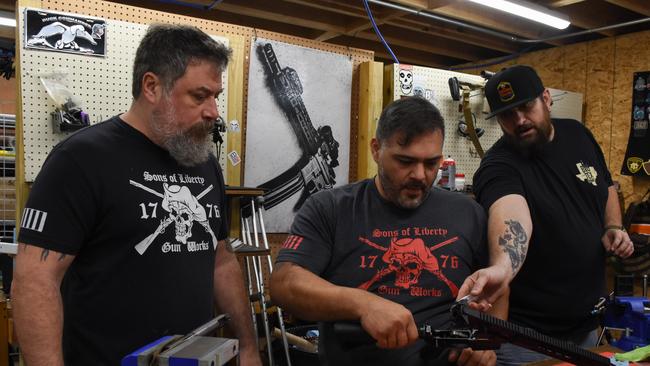
The heart-wrenching testimonies in congress this week by parents of the 31 Americans murdered by deranged 18-year-olds in Buffalo, New York and Uvalde, Texas won’t elicit any more than a token response.
Two weeks after the massacre at Robb Elementary School in Uvalde in which 19 primary school children and two teachers were mowed down – the second deadliest school shooting in US history – a fragile, emerging consensus between Democrat and Republican senators to modestly tighten gun laws looks set to crumble or morph into extra funding for mental health services or provision of incentives for US states to introduce “red flag” laws.
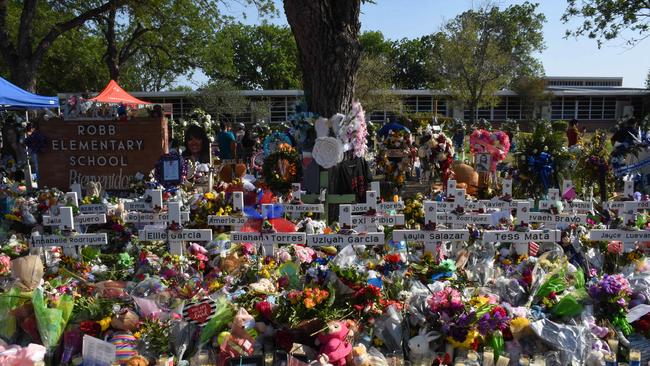
For Australians, overwhelmingly proud of the Howard government’s decision to buy back guns from the public in 1996 following the Port Arthur massacre, the inertia is almost incomprehensible, a miscarriage of democracy, reason or both. Yet the reality is more complex.
Talking to ordinary Texans in Uvalde last week, just one week after the carnage, every one of them, from older women to young men, still supported the US constitution’s second amendment right to own a gun, differing only on how and whether existing laws should be changed.
The sorts of policy options Australia could pursue aren’t available in the US. The starting point, culturally, constitutionally and practically, is entirely different.
“Even if you were to stop production of guns today, close every gun shop, what do you do about the hundreds of millions of guns in circulation, three-quarters of which we have no idea where they are?” Mike Mihalski, founder and owner of Sons of Liberty Gun Works, San Antonio’s biggest manufacturer of Texan-made guns, tells The Weekend Australian.
“Guns don’t have an expiration date, either. I enjoy shooting World War I relics and they work fine,” he says, pointing out that it is “perfectly legal” to buy guns privately on the secondary market, online, and it is thus futile, in his view, lifting minimum purchase ages or banning particular weapons for sale.
The Howard government bought back about 650,000 rifles and firearms in 1996 at a cost of about $700 million. Such a process would be impossible in the US.
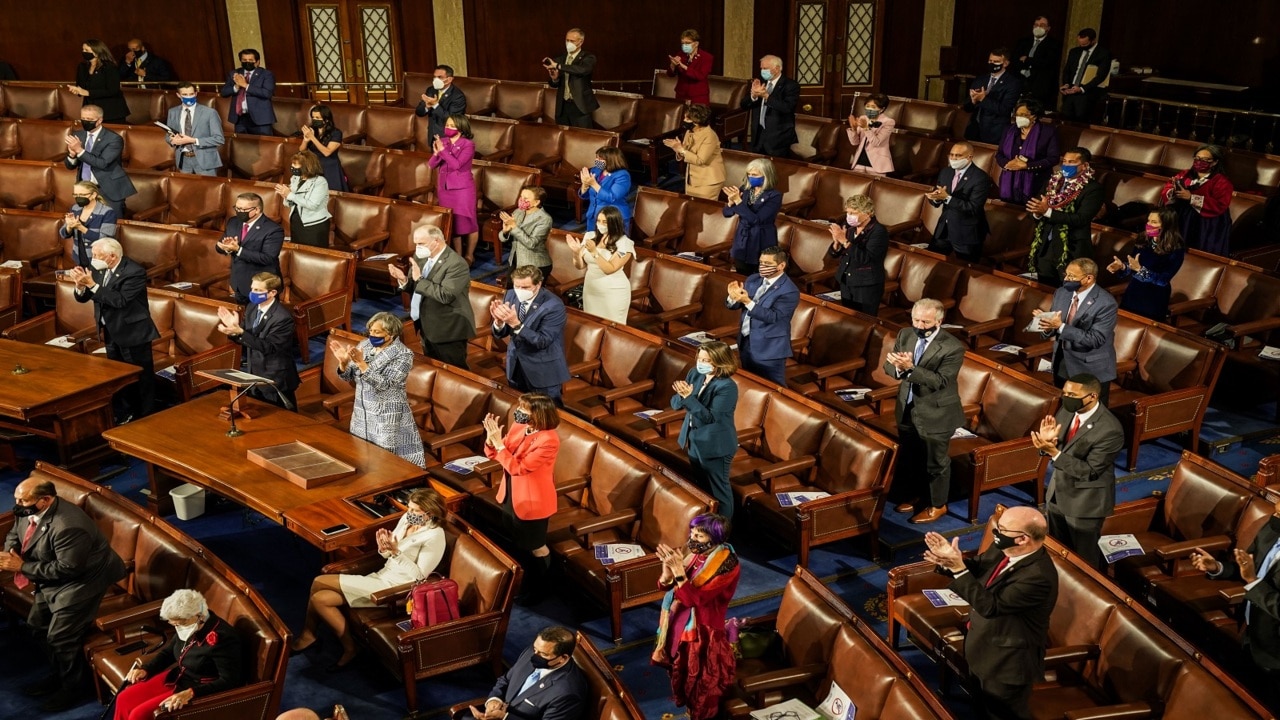
To Australians, Mihalski, 41, might appear to be a caricature of the southern American gun owner, but he’s an informed and articulate advocate for views shared by a large minority of Americans that will throttle new gun restrictions.
“I’m a second amendment absolutist; it’s a fundamental part of who we are,” says Mihalski, agreeing reluctantly to an interview with The Weekend Australian in an emotion-charged week that put gun sellers in the crosshairs of public opinion.
“As a gun manufacturer my first prayer is obviously for the families and the victims, the second is please don’t be one of my guns.”
Sons of Liberty, established in 2015, sells about 15,000 guns a year, assembled in an inconspicuous workshop on the outskirts of downtown San Antonio, the seventh most populous city in the US, about 2½ hours from Uvalde.
No one disputes that the sheer volume of guns in the US leads to additional gun violence. The rate of firearm homicide in the US is eight times that of Canada and about 20 times that of Australia, according to the Institute for Health Metrics and Evaluation.
What is disputed is whether tweaks to gun laws make any difference to gun crime in a nation already overflowing with guns. “We’re just seeing a reactionary drive to ‘do something’, regardless of whether it has meaningful effect,” Mihalski says, emphatic that it is unclear whether differing gun laws across US states – all extremely liberal by Australian standards – have made any difference beyond making people feel better.
“You wreck a country by just governing by doing feel-good shit.”
Bill Clinton signed a law banning assault weapons in 1994, which didn’t stop the Columbine High School massacre in 1999. That law expired in 2004 and criminologists debate inconclusively whether it made any difference.
The third deadliest shooting in the US, at Virginia Tech University in 2007, was undertaken with an ordinary pistol, Mihalski says, rattling off how the grim American history of mass shootings wouldn’t have been altered by the various proposals on offer.
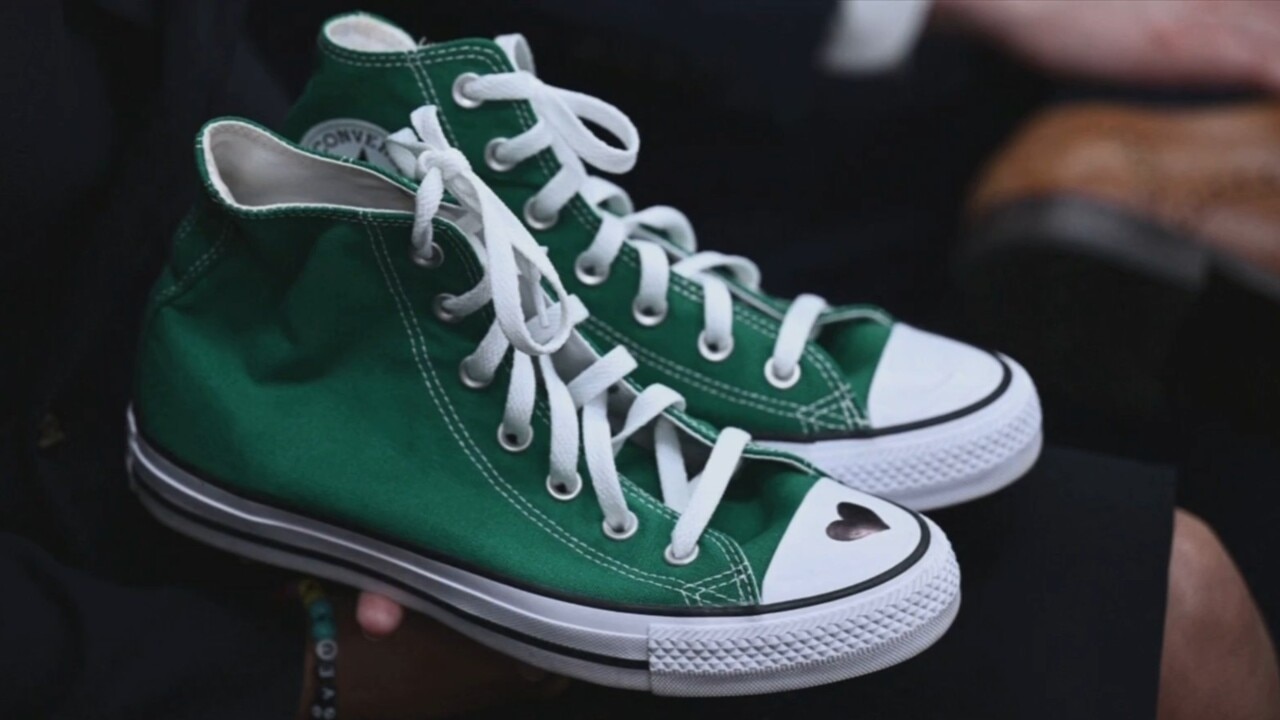
President Joe Biden’s calls for a ban on assault weapons have fallen on deaf ears. In any case, change to federal gun laws depends on Congress, where Democrats have only 50 seats in the 100-seat Senate, 10 short of the threshold required to pass legislation. A federal red flag law – to allow the removal of a gun from a person suspected of mental health or other problems that might pose a risk to public safety – is likely the extent of any Republican support for change.
“I remember Madonna made some comment she fantasised about blowing up the White House. (Comedian) Kathy Griffin held up a fake severed head of Donald Trump – should they have guns taken off them?” Mihalski says. He also bristles at lifting the minimum age to purchase a gun to 21. The shooters in Buffalo and Uvalde were both 18 and had bought their guns legally. “So they have all their legal responsibilities at 18, but without their second amendment right? They can legally enter contracts, be drafted in the military,” he argues, preferring, along with numerous Republican politicians, to give teachers guns,
Mihalski is honest about his philosophical position: even if new restrictions would be effective in reducing gun deaths, he wouldn’t support them, believing gun ownership critical to Americans’ freedom from potential tyranny.
“We all looked at Australia’s lockdown laws as quite draconian, quite oppressive. It wasn’t that our political leadership didn’t want to impose the same restrictions, but they just couldn’t,” he says, one of numerous references to Australia’s response to the pandemic. “There are two different types of people in society: those who want the means to fight back themselves, and those who ask what can the government do to fix it,” he tells me, leaving no doubt which group he falls in.
Indeed, remarkably to Australian ears, in a CBS News/YouGov poll conducted last week almost 30 per cent of Americans and 44 per cent of Republicans said mass shootings were “something we had to accept as part of a free society”.
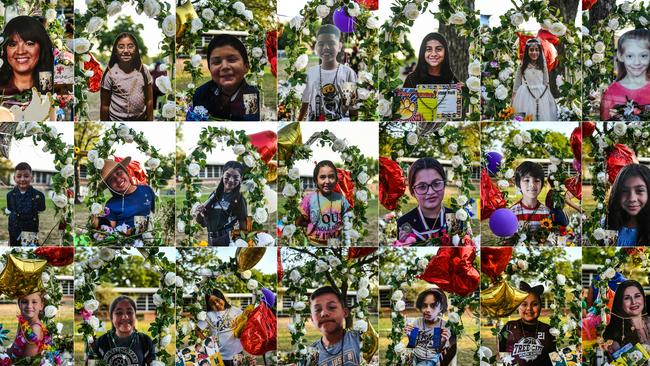
The bigger problem for change advocates is the sheer and underappreciated popularity of gun rights. About 40 per cent of Americans have a gun or have access to one in their household, according to Pew Research.
Significant majorities of Americans say they favour stricter rules – minimum purchase age of 21 (77 per cent); additional background checks (81 per cent); bans on semiautomatic weapons (62 per cent); and “red flag” laws (72 per cent) – according to the CBS News poll.
But what Americans say to pollsters and how they vote are quite different, as The New York Times pointed out this week. Referendums on background checks, for instance, even in progressive states such as California, Maine and Washington, have produced only slim majorities in the past, with support falling 20 to 30 percentage points short of what was expected.
Gun sales soared in the pandemic: an extra 5.1 million Americans became gun owners for the first time between January 2020 and April last year, collectively buying about 20 million new guns, up from 2.4 million in 2019, according to a study by Matt Miller at Northeastern University.
“When Covid started, people had legitimate concerns about reduced policing and emergency services – you didn’t want to be the only person on your block without a gun – then you had the civil unrest after George Floyd’s murder,” Mihalski says, based on his experience with customers.
Even Democrat politicians have steered away from attempts at gun reform in office, except at times of public outrage such as now.
“The power of the gun lobby is simply that we remind politicians that their constituents vote; the anti-gun lobby is where all the money is,” Mihalski contends, dismissing the popular conception the National Rifle Association is an all-powerful bogeyman.
Mihalski’s views are key to understanding why US politicians remain so reluctant to challenge the second amendment, even in the face of extraordinary tragedy.
If the political won’t exist for gun reform now, in the wake of such horrific murders, it probably never will. Americans hoping for substantial change may have to wait until the US Supreme Court reinterprets the second amendment, which it could.
In a close 5-4 decision in 2008 the Supreme Court struck down the District of Columbia’s attempt to outlaw handguns. A more progressive court some point in the future could revisit that principle. But even that won’t change the fundamental issue: America is already awash with guns.



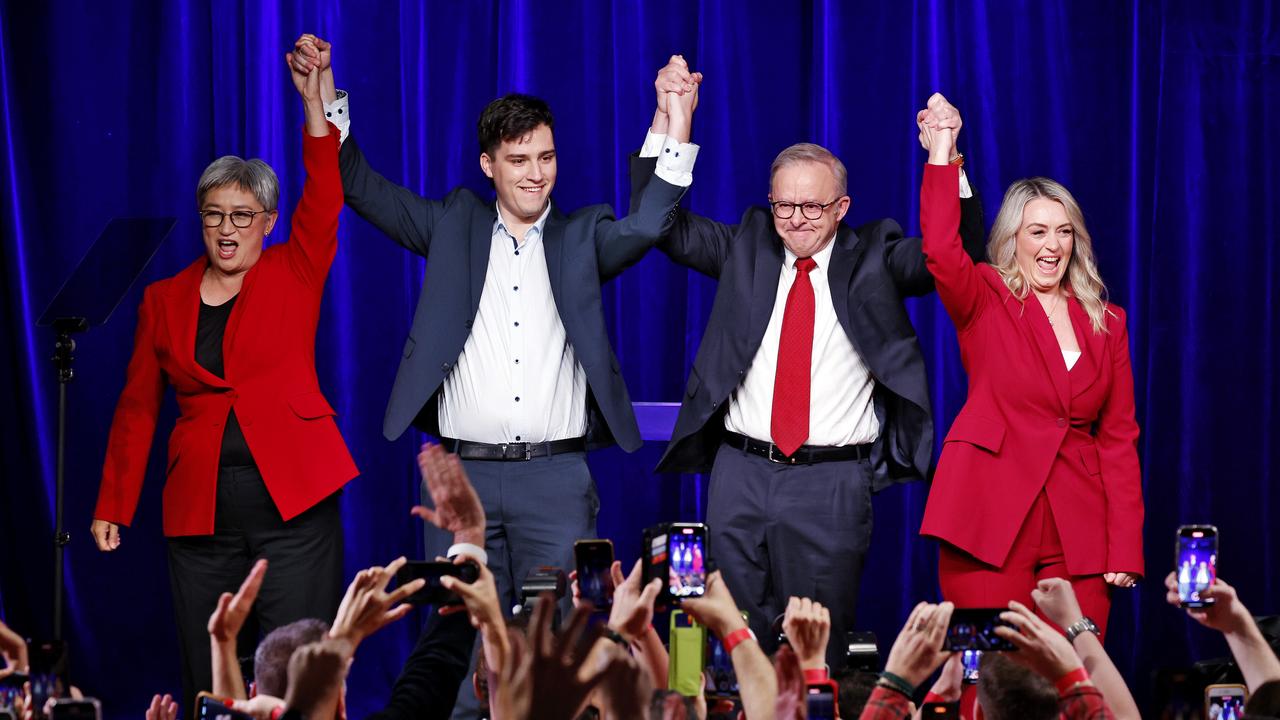
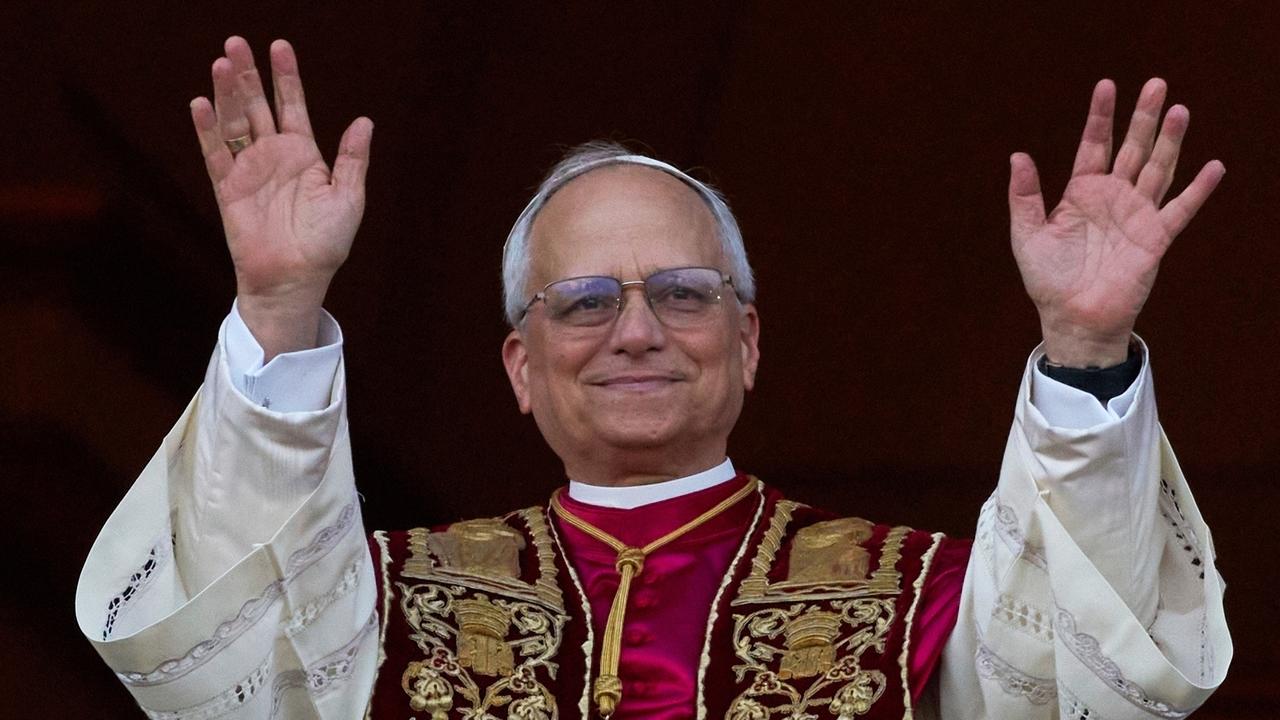
The spate of horrific mass shootings in the US last month, against a backdrop of soaring gun violence nationally, has brought what is for some the holy grail of gun reform closer to fruition than at any time in a generation – but not close enough.